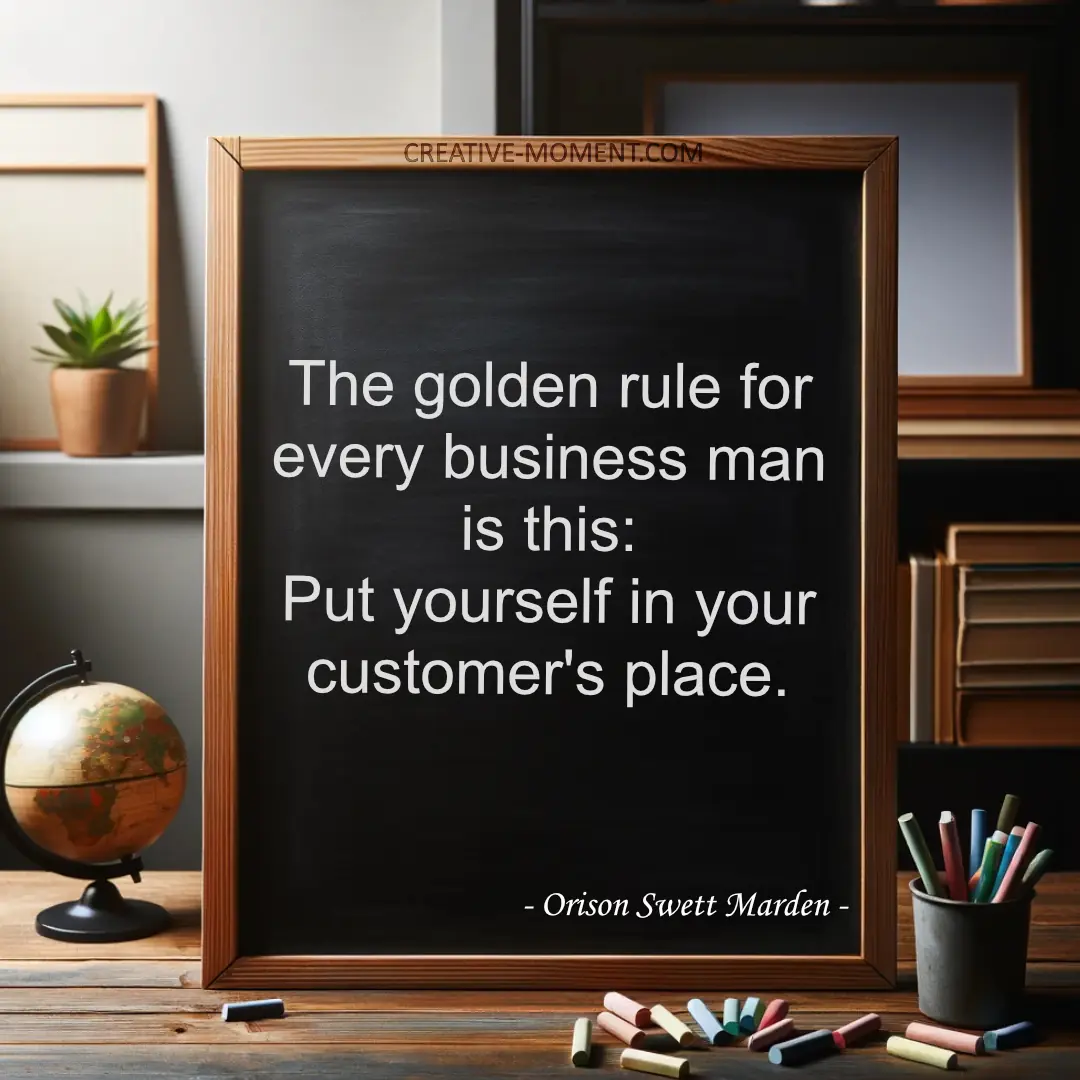Saying: The golden rule for every business man is this: Put yourself in your customer's place
Info
- Title: The golden rule for every business man is this: Put yourself in your customer's place
- Type: Sayings
- Category: Success and Determination
- Print: Download as PDF for printing
Orison Swett Marden captured a core principle of responsible entrepreneurship with the sentence “The golden rule for every business man is this: Put yourself in your customer's place.” The quote is not about marketing tactics but about genuine empathy. Anyone who internalizes this mindset doesn’t just improve their offerings – they redefine how business is done.
Origin and Usage of the Saying
Orison Swett Marden was an American author and founder of the magazine “Success.” The saying comes from his early works on business ethics, published in the early 20th century. The original version is: “The golden rule for every business man is this: Put yourself in your customer's place.” Marden explored the principles of honorable entrepreneurship and influenced a generation of business owners, managers, and salespeople across North America through his books.
Since then, the quote has been used in a wide range of economic contexts, including management training, literature on customer-focused thinking, and personal development guides for professional life. Its concise phrasing and ethical clarity make it a frequently cited statement in value-based business leadership—still relevant today.
Meaning and Interpretation of the Saying
The quote places empathy at the heart of entrepreneurial thinking. It’s not just about understanding customer expectations, but about consciously adopting their perspective. Those who do so act with greater responsibility, foresight, and long-term thinking.
By calling it a “golden rule,” Marden gives the quote a normative weight. He’s not proposing a tactic, but a mindset that builds the foundation of meaningful customer relationships. True understanding, he implies, arises not from data or analysis, but from human closeness in thought and action.
The quote’s practical relevance spans all areas of business: From product design to complaint management, shifting perspective can be the difference between functionality and satisfaction. Decisions made as if one were the customer build trust and reduce friction.
At the same time, the quote rejects shallow sales optimization. Marden’s principle stands for values over short-term profit. Businesses that take his rule seriously don’t see customers as targets, but as equal partners. This fosters loyalty—not through discounts, but through respect.
In today’s digital world, where automation often replaces human contact, this idea gains new significance. Those who succeed in adopting the customer’s view, even digitally, are seen as credible and relevant. Marden’s rule is not only still valid—it’s becoming increasingly essential.

